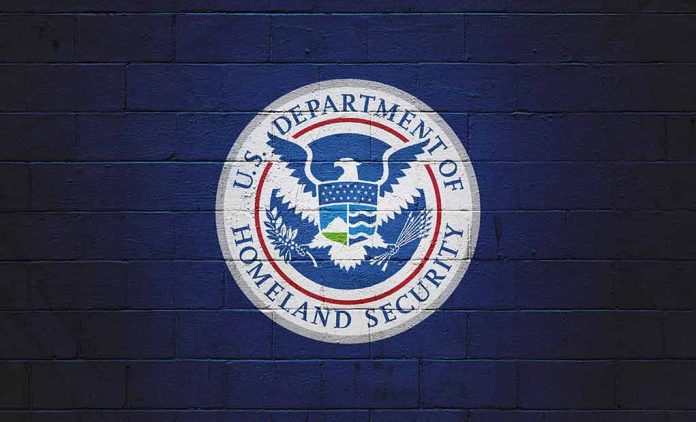
Trump administration officials inadvertently added a journalist to a private Signal chat discussing military operations against Houthi forces in Yemen, revealing sensitive operational details and raising serious concerns about White House security protocols.
Key Takeaways
- The Atlantic’s editor-in-chief Jeffrey Goldberg was accidentally included in a Signal group chat containing Trump administration officials discussing Yemen military operations.
- The group chat included high-ranking officials such as Defense Secretary Pete Hegseth, Secretary of State Marco Rubio, and Vice President JD Vance sharing operational details and congratulatory messages.
- The National Security Council confirmed the authenticity of the message chain while downplaying security concerns.
- President Trump claims no knowledge of the incident, stating he knows “nothing about it” while emphasizing the success of the military operation.
- Democratic leaders have called for investigations, with Senate Minority Leader Chuck Schumer describing it as “one of the most stunning breaches of military intelligence.”
Signal Chat Security Breach Details
A significant security lapse has emerged within the Trump administration after The Atlantic reported that its editor-in-chief Jeffrey Goldberg was mistakenly added to a Signal group chat discussing sensitive military operations against Houthi rebels in Yemen. The chat reportedly contained operational details, strategic discussions, and post-attack congratulatory messages between top officials including Defense Secretary Pete Hegseth, Secretary of State Marco Rubio, Vice President JD Vance, Director of National Intelligence Tulsi Gabbard, and CIA Director John Ratcliffe.
Brian Hughes, a National Security Council spokesperson, confirmed the authenticity of the message thread, “At this time, the message thread that was reported appears to be authentic, and we are reviewing how an inadvertent number was added to the chain. The thread is a demonstration of the deep and thoughtful policy coordination between senior officials. The ongoing success of the Houthi operation demonstrates that there were no threats to our servicemembers or our national security,” Hughes declared.
Jeffrey Goldberg on Trump not knowing about the Signal group chat: "I alerted the White House shortly after 9 in the morning." pic.twitter.com/5QK1HqNsk8
— Blue Georgia (@BlueATLGeorgia) March 25, 2025
Trump and Administration Response
President Trump has distanced himself from the incident, claiming no knowledge of the situation. When questioned about the report, Trump responded, “I don’t know anything about it, I’m not a big fan of The Atlantic. To me it’s a magazine that’s going out of business … but I know nothing about it”
The president further minimized the potential impact, adding, “Well it couldn’t have been very effective because the attack was very effective … I don’t know anything about it, you’re telling me about it for the first time.” Defense Secretary Pete Hegseth has disputed the characterization of the messages, “I’ve heard how it was characterized. Nobody was texting war plans, and that’s all I have to say about that,” remarked Hegseth. The White House continues to express confidence in National Security Advisor Mike Waltz and other officials involved.
Congressional Reaction and Calls for Investigation
Democratic leaders have responded with alarm to the security breach. Senate Minority Leader Chuck Schumer called for an immediate investigation, describing the incident as “one of the most stunning breaches of military intelligence I have read about in a very, very long time.” Other Democratic lawmakers, including Senator Jack Reed and House Minority Leader Hakeem Jeffries, have similarly expressed concern about the potential national security implications.
House Speaker Mike Johnson has downplayed the severity of the incident, ruling out disciplinary action against the officials involved. When asked if there would be consequences for National Security Advisor Waltz or Defense Secretary Hegseth, Johnson replied, “no, no of course not.” Johnson acknowledged the mistake but emphasized the successful outcome of the military operation against the Houthis, which took place on March 15 in response to attacks on American warships.
Military Operation Context
The military strike against Houthi forces in Yemen was carried out on March 15, with President Trump warning both the Houthis and their Iranian backers of severe consequences should attacks on American assets continue. The administration has framed this operation as a strong response to what they characterized as inadequate actions by the previous Biden administration. Despite the security concerns raised by the accidental inclusion of a journalist in sensitive communications, administration officials have repeatedly pointed to the successful execution of the military mission as evidence that security was not compromised.
While the administration works to contain the political fallout, this incident raises broader questions about information security protocols within the highest levels of government, particularly regarding the use of messaging apps like Signal for discussing sensitive military operations. The Pentagon and State Department have referred questions about the incident to the National Security Council and White House, indicating the centralized handling of this security breach at the highest levels of the administration.
Sources:
Messages with Yemen war plans inadvertently shared with reporter appears ‘authentic’: Official
Speaker Johnson: Waltz, Hegseth shouldn’t be disciplined over war plans Signal chat



